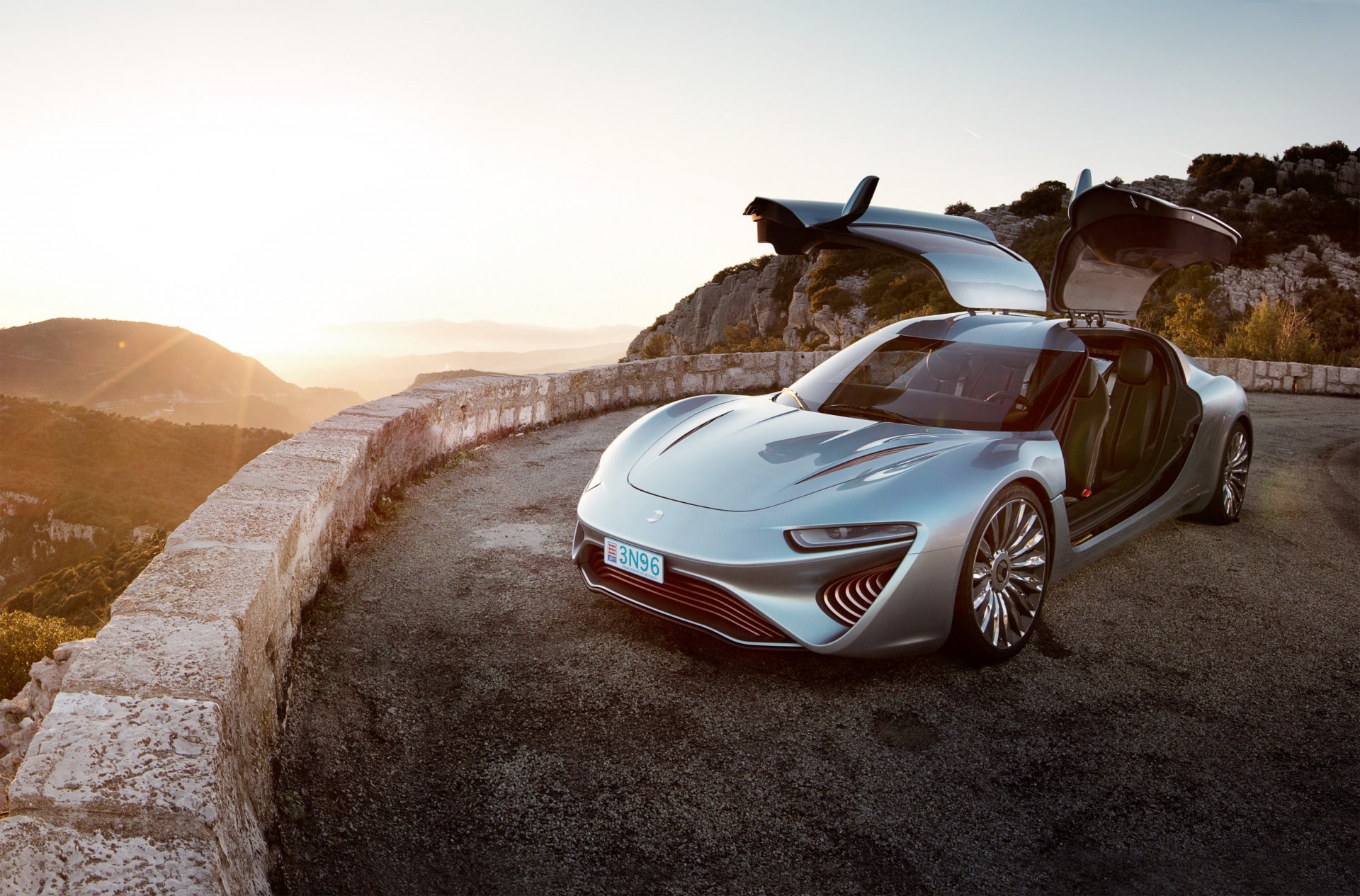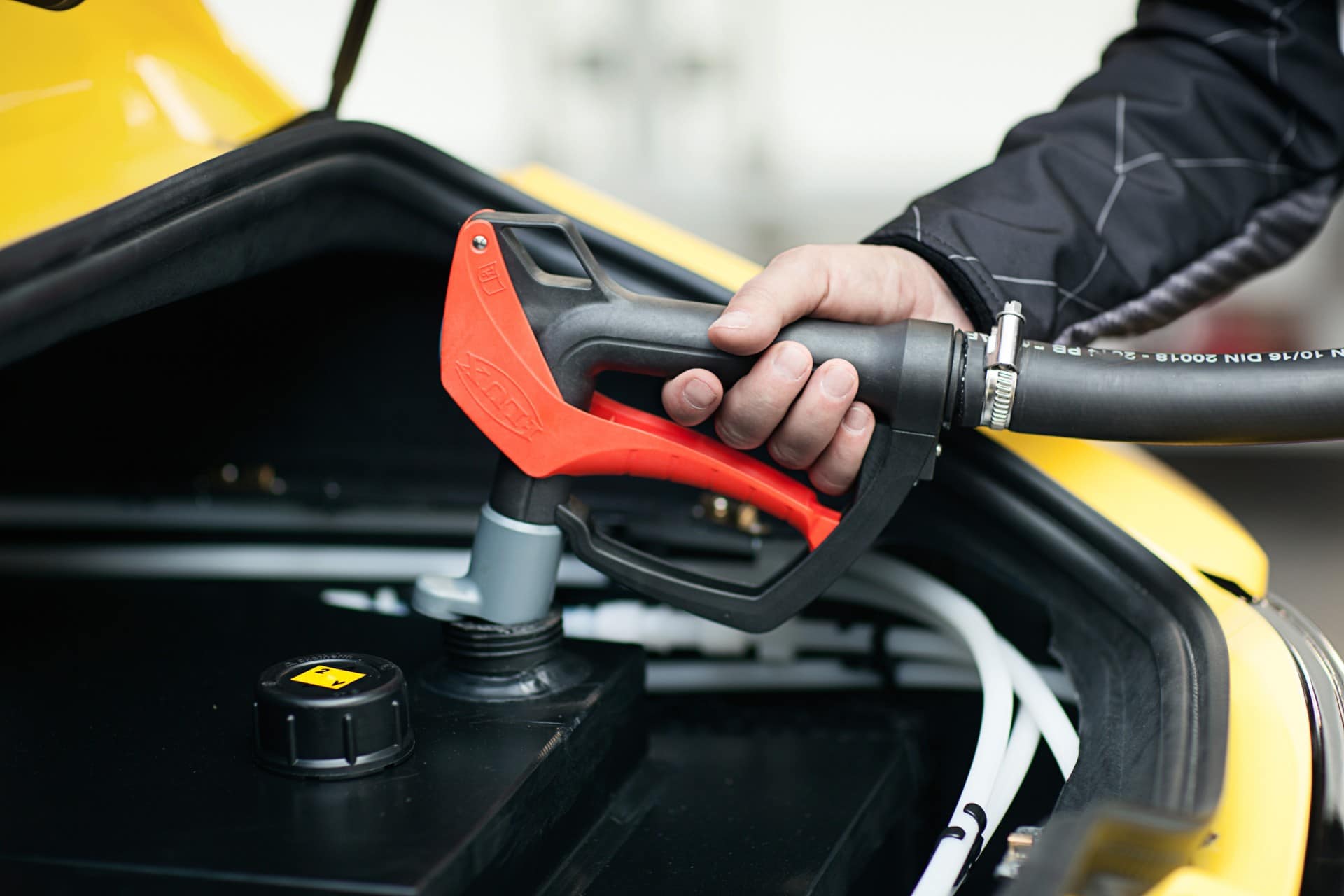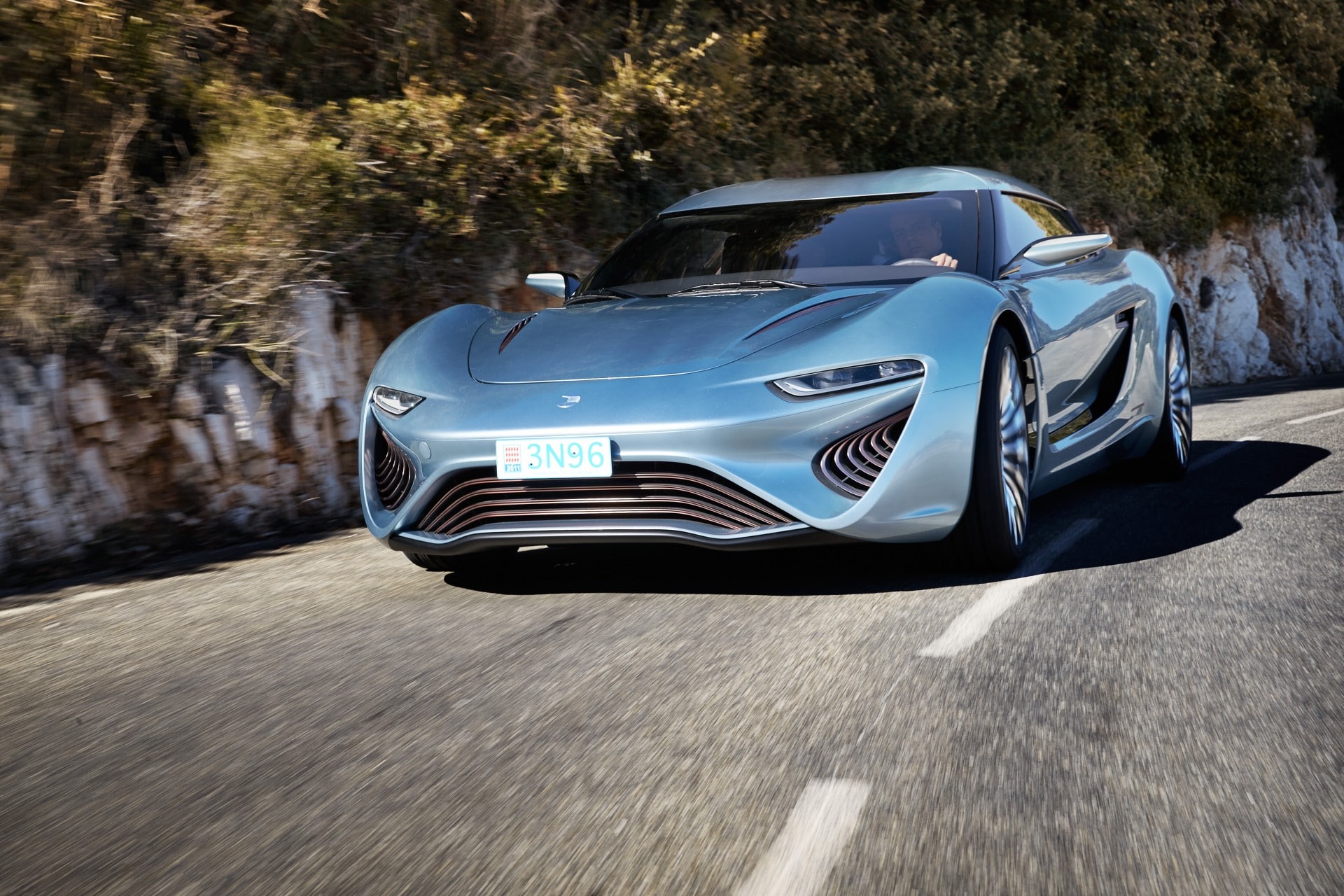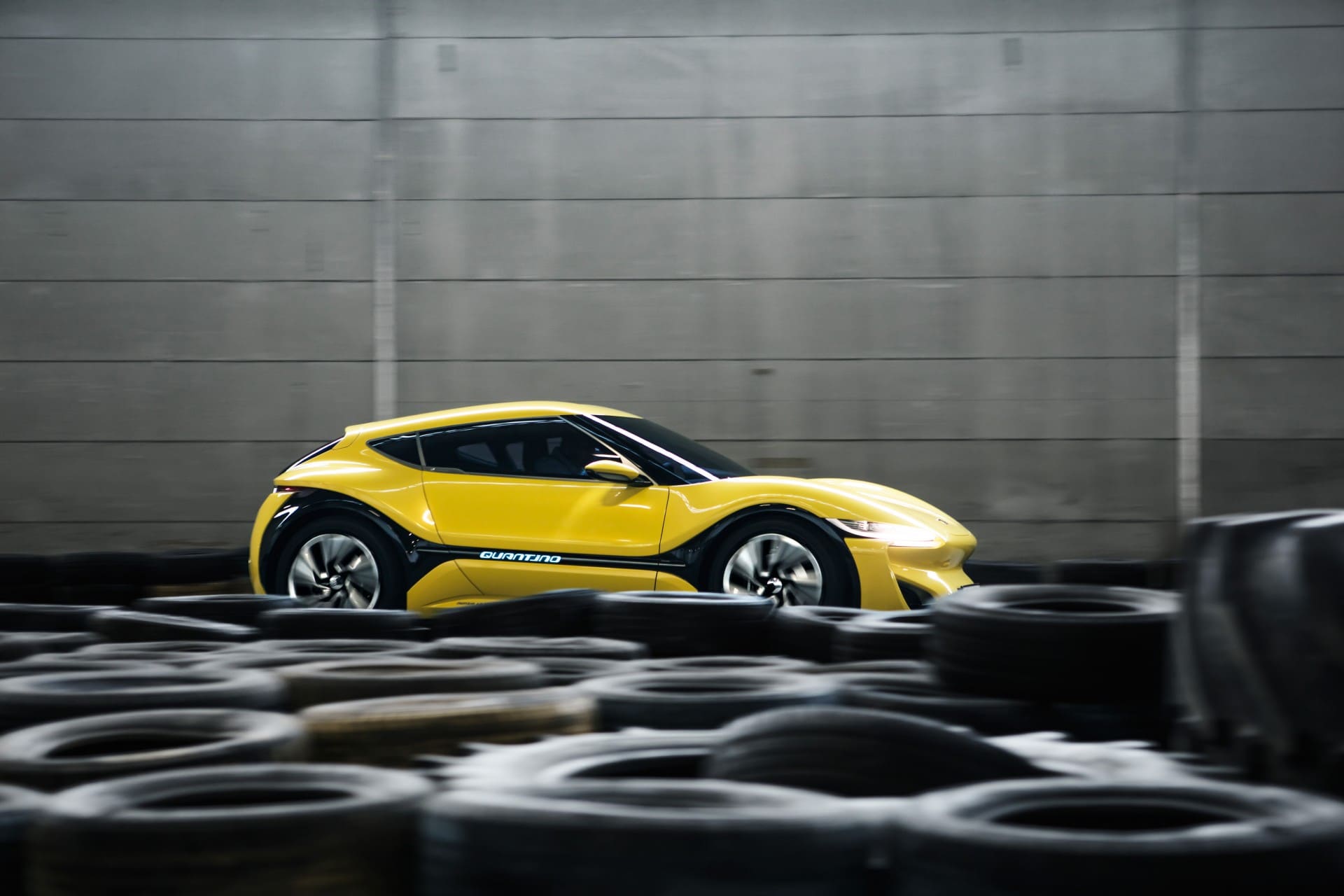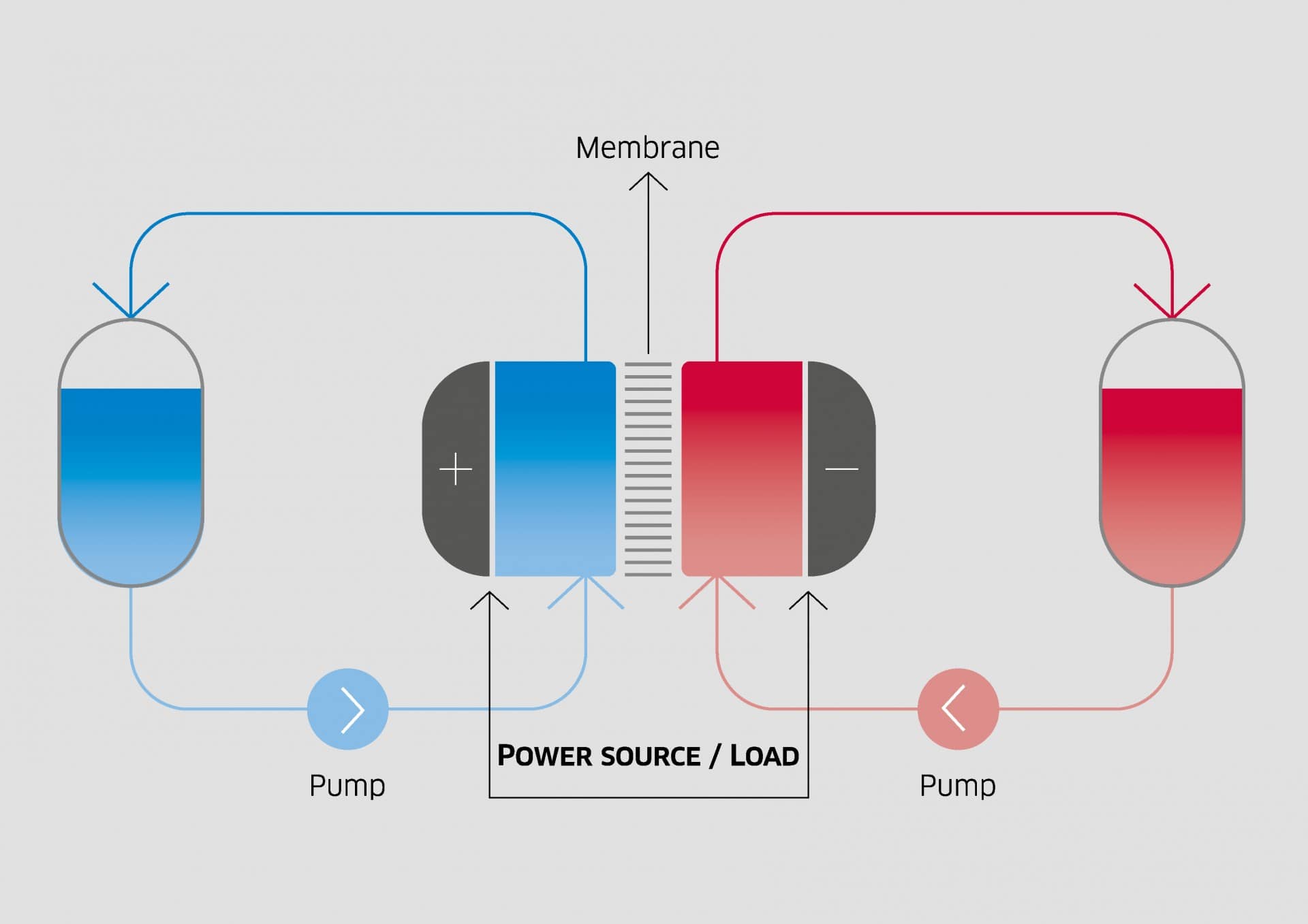Liechtenstein (Vaduz)
With Quantino electric vehicles, a Liechtenstein-based company want to prove that its nanoFlowcell® technology can free mobility from its dependence on fossil fuels and current battery systems. It doesn’t plug in to recharge the way electric vehicles do (which are not as green as you think). It runs on flow cell technology – a battery that uses salt water solutions to store electrolytes that can undergo reactions to produce electricity.
Able to travel 1,000 kilometres (620 miles) for 14 hours on a single tank and reach speeds of 200 km/h, Quantino cars are electrical, silent and give off zero harmful emissions – unleashing a new energy storage within the new field of electric mobility. Two ionic fluids generate electricity by means of a chemical process. One holds a positive charge and other, negative.
The electrolyte liquids are ecologically harmless, present no danger to health and can be produced in infinite quantities. They can be produced using any one of a wide range of energy sources, including solar and wind energy, bio-fuels and natural gas. On-par with modern lithium-ion accumulators in energy density – but safer – the flow cell stores eco-friendly electrochemical energy and releases it as electricity.
By 2018 nanoFlowcell® want to construct a ‘QUANT City‘ in Tenero in the Swiss canton of Ticino. It will be devoted to the development of flow cell technology: “In future, any professional examination of the available alternatives for electric mobility will have to include flow cell technology,” says Nunzio La Vecchia, nanoFlowcell®’s Chief Technical Officer,. “As the ionic liquid is neither combustible nor toxic, blanket coverage using existing systems, such as petrol stations, is quite conceivable.”
“Flow cell technology is not limited to the automotive sector,” the company’s President of the Board of Directors Prof. Jens Ellermann adds. They plan to make mobile electrical power available in an environmentally sustainable, resource-efficient and non-hazardous manner on land, at sea and in the air. “Along with the automotive sector, areas such as aerospace, the transport industry – that is, trains, trucks or shipping – and terrestrial applications are also predestined for the use of flow cell technology.”
Watch the low voltage car in action:
Project leader
Nunzio La Vecchia, Chief Technical Officer, and Prof Jens Ellermann, President of the Board of Directors
Support the Atlas
We want the Atlas of the Future media platform and our event to be available to everybody, everywhere for free – always. Fancy helping us spread stories of hope and optimism to create a better tomorrow? For those able, we'd be grateful for any donation.
- Please support the Atlas here
- Thank you!
